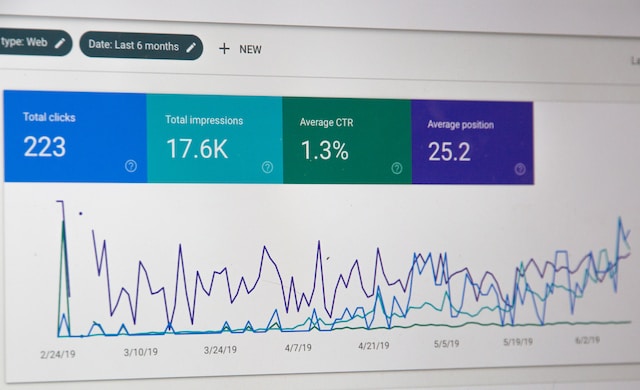
- Understanding SEO Basics
- Conducting Keyword Research
- On-Page Optimization Techniques
- Creating High-Quality Content
- Building Backlinks and External Links
- Measuring and Monitoring Your SEO Progress
- Staying Up-to-Date with Search Engine Algorithms
- Utilizing Tools and Resources for SEO Success
- Frequently Asked Questions (FAQ)
simple tips for improving your websites SEO For Beginner. In today’s digital age, having a website is essential for any business or organization. However, simply having a website is not enough. To attract visitors and reach your target audience, it’s crucial to optimize your website’s search engine ranking through search engine optimization (SEO). SEO can seem complex and overwhelming, especially for beginners. But don’t worry – with a few simple tips, you can improve your website’s SEO and increase its visibility to potential customers and clients. In this article, we’ll explore some basic SEO tips and techniques that beginners can use to improve their website’s search engine ranking and drive more traffic to their site.
Understanding SEO Basics
What is SEO?
SEO, short for Search Engine Optimization, is the process of optimizing a website to increase its visibility and improve its ranking in search engine results pages (SERPs). The goal of SEO is to attract more organic traffic to a website by ensuring it appears high in relevant search results.
Why is SEO Important for Websites?
SEO is vital for websites as it helps them attract more traffic and improve their visibility online, which can lead to increased sales, conversions, and revenue. By optimizing your website for search engines, you can reach potential customers who are actively searching for the products or services you offer.
How Search Engines Work?
Search engines utilize complex algorithms to crawl and index websites, analyzing various factors to determine their relevance and value for specific search queries. The search engine’s goal is to provide the most relevant and useful results to the user, based on their search query. Factors analyzed by search engines include website content, keywords, links, and user experience.
Conducting Keyword Research
Why Keyword Research is Important?
Keyword research is crucial for creating a successful SEO strategy as it helps to identify the relevant search terms used by your target audience. By understanding the keywords and phrases people use to search for the products or services you offer, you can optimize your website content accordingly, improving your chances of ranking high in search results.
How to Find Relevant Keywords for Your Website?
One effective way to find relevant keywords for your website is to use keyword research tools, such as Google Keyword Planner, SEMrush, or Moz. These tools can help you identify the keywords and phrases used by your target audience, as well as their search volume, competition, and relevance.
How to Analyze the Competition for Your Keywords?
Analyzing your competition’s keywords is essential, as it allows you to understand what keywords they are targeting and how they are optimizing their website content. This information can help you identify areas where you can improve your content strategy to outrank your competitors in search results.
On-Page Optimization Techniques
Why On-Page Optimization is Essential?
On-page optimization involves optimizing your website’s content and HTML source code to improve its relevance, user experience, and search engine ranking. Effective on-page optimization can improve your website’s crawlability, indexing, and ranking in search engines, helping to attract more organic traffic.
How to Optimize Your Website’s Title and Meta Tags?
Title and meta tags provide users and search engines with information about the content on your website. To optimize your website’s title and meta tags, ensure they accurately reflect the content of your pages, include relevant keywords, and are within the recommended character limits.
How to Create a User-friendly URL Structure?
Creating a user-friendly URL structure involves using descriptive, keyword-rich URLs that are easy for users and search engines to understand. A good URL structure can help improve your website’s user experience, search engine ranking, and click-through rates.
How to Optimize Your Website’s Images?
Image optimization involves reducing the file size of images on your website to improve page load times and user experience. Additionally, you can optimize your image alt tags by using descriptive, keyword-rich alt text that accurately reflects the content of your images.
Creating High-Quality Content
Why High-Quality Content is Important for SEO?
High-quality content plays a significant role in SEO, as it can attract more organic traffic, improve user experience, and increase engagement on your website. By creating valuable, informative content that meets the needs of your target audience, you can improve your website’s search engine ranking and visibility.
How to Create SEO-friendly Content?
To create SEO-friendly content, you should ensure it is well-researched, informative, and provides value to your target audience. Additionally, optimizing your content for relevant keywords, adding internal and external links, and using descriptive headings can help improve its search engine ranking.
How to Use Keywords in Your Content?
When using keywords in your content, ensure they are relevant, used naturally, and placed strategically throughout your content. Avoid keyword stuffing, as this can negatively impact your website’s search engine ranking.
How to Optimize Your Content for Readability?
Optimizing your content for readability involves using short paragraphs, headings, bullet points, and concise sentences to make it more user-friendly. Additionally, using visual elements such as images or videos can help improve user engagement and readability.Business?
Building Backlinks and External Links
Why Backlinks and External Links are Important?
Backlinks and external links are important for search engine optimization (SEO) because they serve as indicators of your website’s credibility and authority. When other credible websites link to your site, search engines view your site as more trustworthy and valuable, which can improve your search engine rankings.
How to Build High-Quality Backlinks for Your Website?
To build high-quality backlinks for your website, you need to create valuable and relevant content that people will want to link to. Some ways to do this include guest blogging on other relevant sites, creating link-worthy infographics, and conducting original research or surveys that other businesses may want to share on their sites. It’s also important to focus on building relationships with other businesses and influencers in your industry, as they may be more likely to link to your site if they know and trust you.
How to Use External Links to Improve Your Website’s Ranking?
Using external links can also improve your website’s ranking by indicating to search engines that you are an authoritative source and providing additional relevant information to your readers. However, it’s important to ensure that the external links you use are relevant and credible, as linking to low-quality or spammy sites can hurt your SEO. You can also consider reaching out to other websites to ask for them to link to your site, but be sure to provide a clear value proposition and reason for why they should link to you.
Measuring and Monitoring Your SEO Progress
Why Measuring and Monitoring Your SEO Progress is Important?
Measuring and monitoring your SEO progress is important because it allows you to gauge the effectiveness of your efforts and adjust your strategy as needed. By tracking important metrics such as organic traffic, keyword rankings, and backlink profiles, you can identify areas that need improvement and areas where you are excelling.
How to Use Google Analytics to Monitor Your Website’s Performance?
Google Analytics is a powerful tool for monitoring your website’s performance. By setting up goals and tracking important metrics such as traffic sources, bounce rate, and time on site, you can gain valuable insights into how users are interacting with your site and where you may need to make improvements. You can also use analytics to track the success of specific campaigns or initiatives, such as social media or email marketing.
How to Track Your Website’s Ranking in Search Engines?
To track your website’s ranking in search engines, you can use tools like Google Search Console, SEMrush, or Ahrefs. These tools allow you to monitor your keyword rankings, identify opportunities for improvement, and track changes over time. It’s important to regularly check your rankings and adjust your SEO strategy as needed to ensure that you are staying ahead of the competition.
Staying Up-to-Date with Search Engine Algorithms
Why Staying Up-to-Date with Search Engine Algorithms is Important?
Search engine algorithms are constantly changing, which means that your SEO strategy needs to be adaptable in order to remain effective. Staying up-to-date with these changes is important because it allows you to adjust your strategy in real-time and maintain your website’s search engine rankings.
How to Stay Informed about Search Engine Updates?
To stay informed about search engine updates, you can subscribe to industry blogs and newsletters, follow industry experts on social media, and attend conferences and webinars. It’s also important to regularly check search engine news and updates directly from search engines such as Google, Bing, and Yahoo.
How to Adapt to Search Engine Algorithm Changes?
To adapt to search engine algorithm changes, it’s important to have a flexible SEO strategy that is focused on providing value to users and following best practices. This may involve updating your website content, improving your backlink profile, and optimizing for mobile devices and voice search. It’s also important to regularly monitor your website’s performance and adjust your strategy as needed to maintain your search engine rankings.
Utilizing Tools and Resources for SEO Success
Why Using Tools and Resources is Important for SEO?
Using tools and resources can help you streamline your SEO efforts and identify areas for improvement more efficiently. These tools can provide valuable insights into your website’s performance and help you create an effective SEO strategy.
What are Some Useful SEO Tools and Resources?
Some useful SEO tools and resources include Google Analytics, Google Search Console, SEMrush, Ahrefs, Yoast SEO, and Moz. These tools can provide valuable insights into your website’s performance, identify keyword opportunities, and help you monitor and improve your backlink profile.
How to Choose the Best SEO Tools for Your Business?
To choose the best SEO tools for your business, it’s important to consider your specific needs and budget. Some tools may be better suited for larger businesses with larger budgets, while others may be more appropriate for smaller businesses or individuals. It’s also important to read reviews and compare features to ensure that you are investing in a tool that will provide the most value for your business.In conclusion, SEO is a crucial aspect of any website’s success in today’s digital age. By following these simple tips and techniques, beginners can improve their website’s search engine ranking and visibility to potential visitors. However, SEO is an ongoing process that requires time and effort. It’s crucial to stay up-to-date with search engine algorithms and continuously adjust your website’s SEO strategy accordingly. With dedication and patience, you can achieve SEO success and take your website to the next level.
Frequently Asked Questions (FAQ)
1. What is the importance of SEO for a website?
SEO is essential for a website’s success because it helps improve its search engine ranking and visibility to potential visitors. A higher search engine ranking can drive more organic traffic to a website, leading to increased brand awareness, customer engagement, and profitability.
2. Can I improve my website’s SEO without technical skills?
Absolutely! While some SEO techniques require technical skills and knowledge, many basic SEO tips and techniques can be implemented without any technical expertise. For example, creating high-quality content, conducting keyword research, and building backlinks are all essential SEO practices that can be done without technical skills.
3. How long does it take to see improvements in my website’s SEO?
SEO is a long-term process that requires time and effort. While some results may be seen immediately, such as an increase in traffic or engagement, it can take several weeks or even months to see significant improvements in your website’s search engine ranking. It’s crucial to be patient and consistent with your SEO strategy and monitor your progress regularly.
4. What are some common SEO mistakes to avoid?
There are several common SEO mistakes that beginners should avoid, including keyword stuffing, using irrelevant keywords, neglecting website structure and navigation, and not optimizing for mobile devices. It’s crucial to follow best practices and avoid shortcuts to ensure sustainable and long-term SEO success.
Read More:





